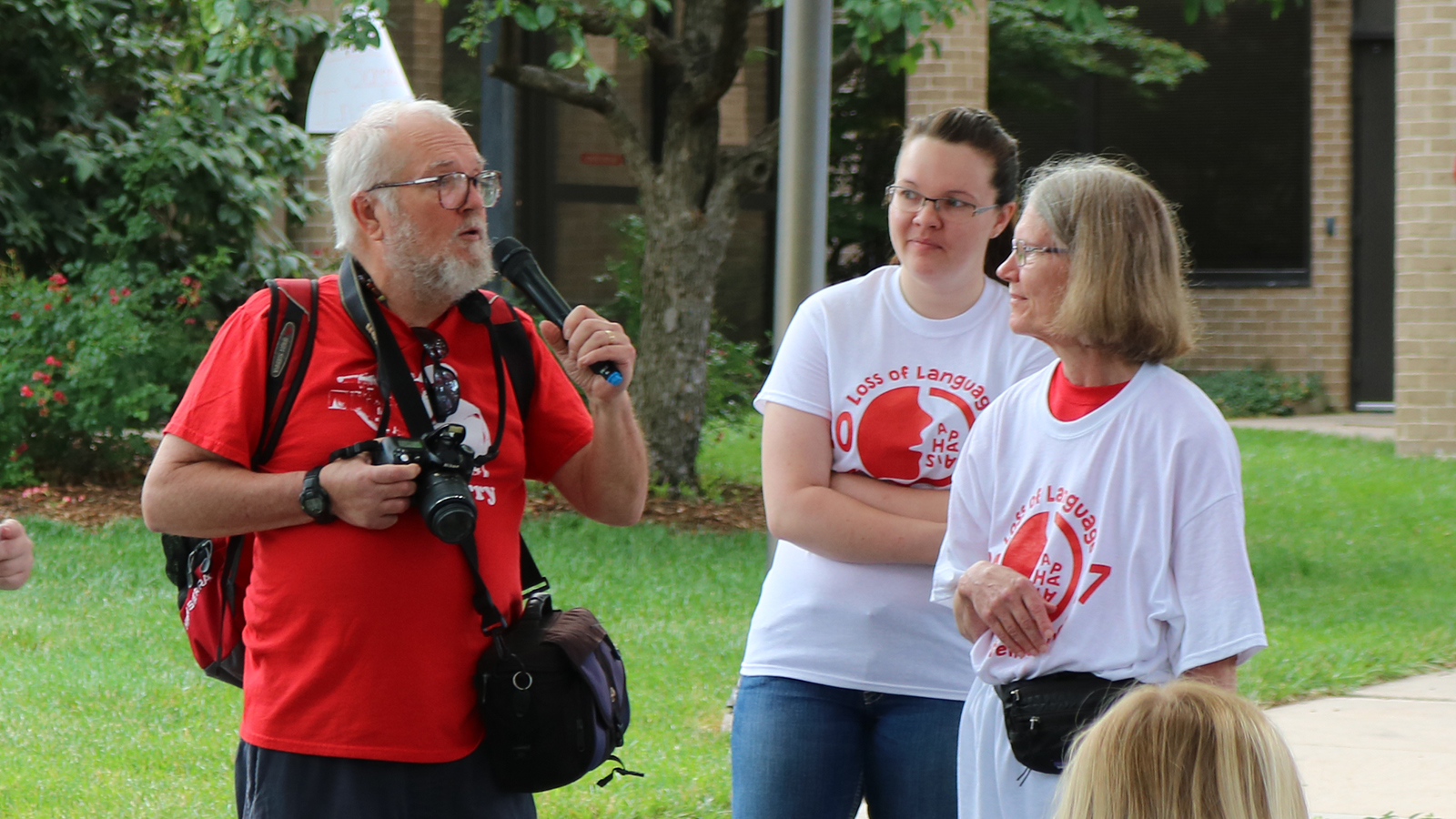
Aphasia is a communication disorder affecting more than 2 million people in the United States, yet a majority of Americans have never heard of the term “aphasia.” With Aphasia Awareness Month in full swing, speech-language pathologists at the Barkley Speech Language and Hearing Clinic and graduate students in the University of Nebraska-Lincoln’s speech-language pathology program are hoping to change that.
The Husker graduate students in the SLP program will host their Fourth Annual Aphasia Awareness Walk Saturday, June 9, on East Campus. Each year, the event brings together individuals with aphasia, their families and friends, and other community members, all with the goal of getting more people to understand what it means for someone to have aphasia.
Aphasia is an impairment of language, affecting the production or comprehension of speech and the ability to read or write. A chronic, life-changing condition, aphasia occurs after an injury to the brain, most commonly from a stroke. People with aphasia have relatively spared intellect.
Proceeds from the Aphasia Awareness Walk go to the Aphasia Community Partners program, which was established by speech-language pathologists at the Barkley Clinic in 2017 to help individuals with aphasia stay active in the community. The program is comprised of volunteers who have basic training in how to communicate with a person who has aphasia. A person with aphasia is paired with a volunteer who takes the individual out to engage in community activities.
“We are getting volunteers all the time,” said Kristy Weissling, associate professor of practice in UNL’s Department of Special Education and Communication Disorders. “We know that there are people out there who have aphasia and might benefit from the program, so we are trying to get the word out to them as well. They don’t have to come to the Barkley Clinic for individual or group therapy to be part of the Aphasia Community Partners program because it’s completely separate. We are always looking to help anybody who needs help.”
Weissling added that the hope is to eventually expand the Aphasia Community Partners program to a statewide level.
“We have talked about eventually reaching out and being able to provide support in some smaller towns around Nebraska by doing online video training. If we had a person with aphasia and we could find a volunteer in their community, we could do some checking in through tele practice.”
In addition to the walk held each June and the Aphasia Community Partners program, the Barkley Clinic offers both individual and group therapy for people with aphasia. The first step to beginning therapy at the Barkley Clinic involves a consult, where a speech-language pathologist evaluates the person with aphasia to determine if therapy is warranted and the type and intensity of treatment that would most benefit the individual. Some people attend only individual sessions, some attend only the group sessions, some participate in the Aphasia Community Partners program, and others do all three.
“The idea is that the group environment provides an opportunity for people to practice the communication skills that they’ve worked on in the individual session with each other, and to learn from each other what strategies other people are using to communicate better,” Weissling explained.
The group sessions, which have been offered at the Barkley Clinic for more than 15 years, are held once a week for 90 minutes. Those sessions are facilitated by the graduate SLP students, and each session features a different topic of discussion. The sessions focus on common everyday activities and the communication that is needed for that activity or to talk to others about the activity. Topics that have been covered include sports, eating out, music, new technology, and gardening. Family members of the individuals with aphasia are also encouraged to be involved or observe at the group sessions.
For more information about the Aphasia Awareness Walk or the Aphasia Community Partners program, visit go.unl.edu/aphasia-partners. To contact the Barkley Clinic to arrange a consult or get more information about services for individuals with aphasia, call 402-472-2071.